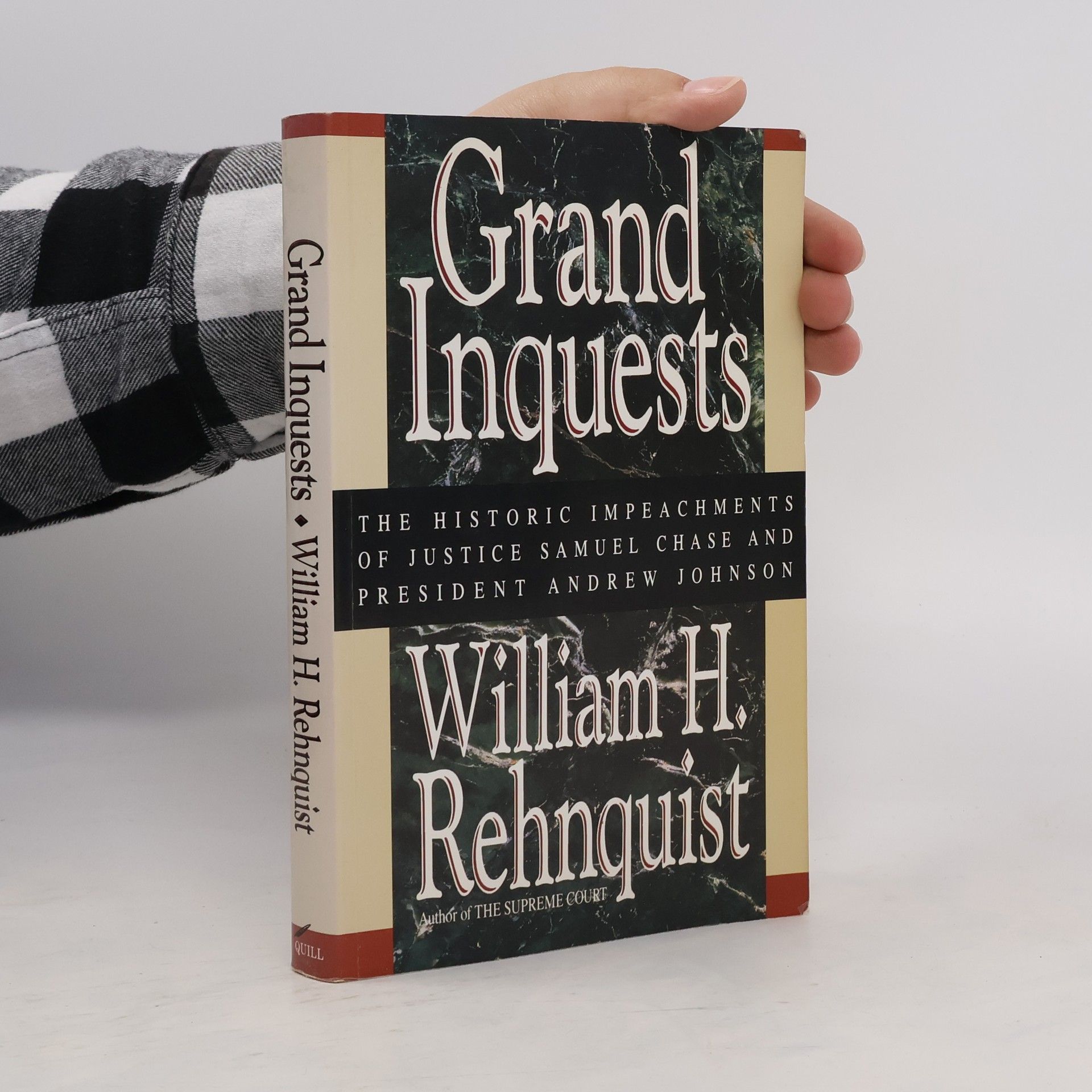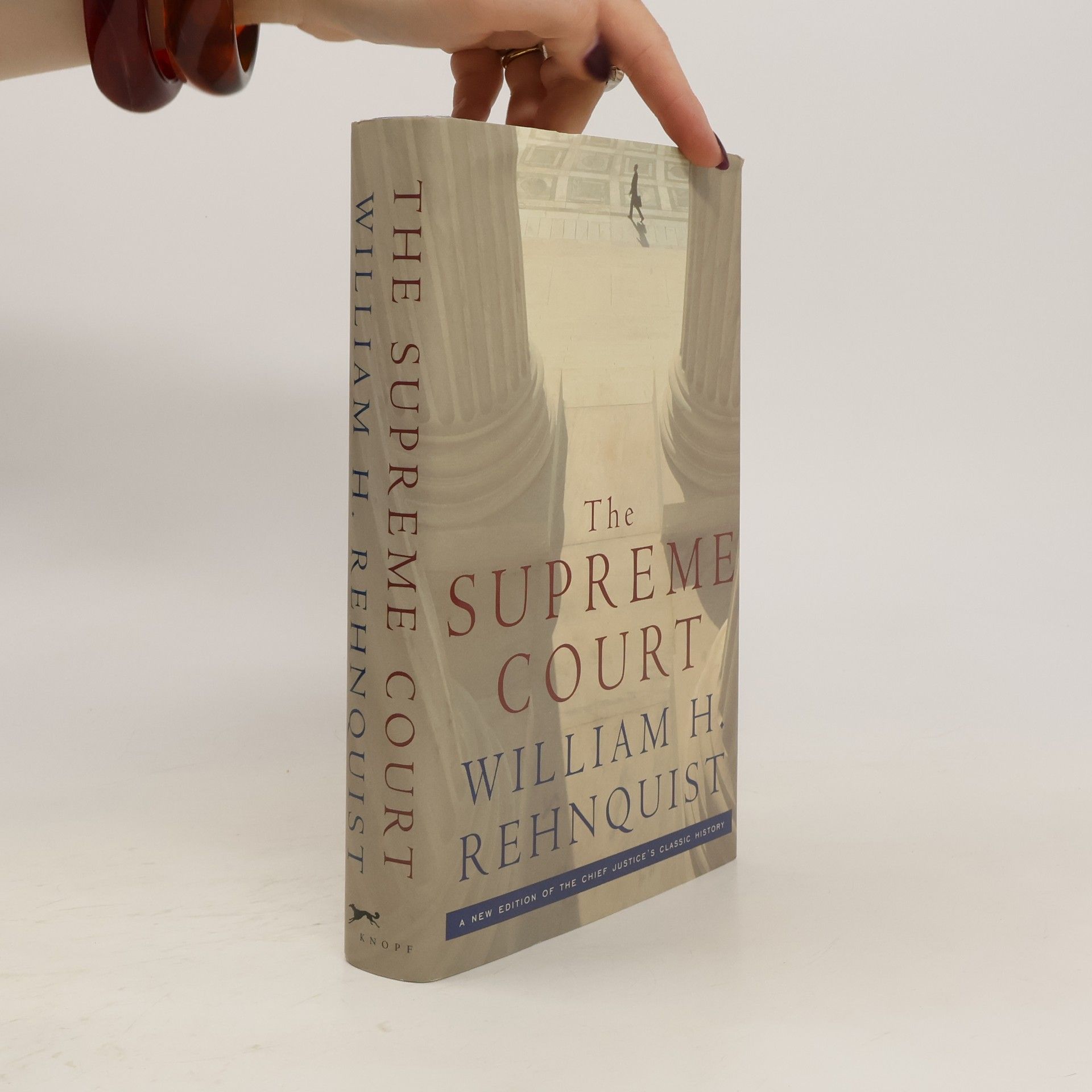William H Rehnquist Livres
William Hubbs Rehnquist was an American lawyer, jurist, and a political figure who served as an Associate Justice on the Supreme Court of the United States and later as the Chief Justice of the United States. Considered a conservative, Rehnquist favored a federalism under which the states meaningfully exercised governmental power. Under this view of federalism, the Supreme Court of the United States, for the first time since the 1930s, struck down an Act of Congress as exceeding federal power under the Commerce Clause. Rehnquist presided as Chief Justice for nearly 19 years, making him the fourth-longest-serving Chief Justice after John Marshall, Roger Taney, and Melville Fuller, and the longest-serving Chief Justice who had previously served as an Associate Justice. The last 11 years of Rehnquist's term as Chief Justice (1994–2005) marked the second-longest tenure of one roster of the Supreme Court.


Grand Inquests
The Historic Impeachments of Justice Samuel Chase and President Andrew Johnson
- 312pages
- 11 heures de lecture
The two acquittals by the Senate were important because they forestalled the use of impeachment solely for political purposes in this country. Chief Justice Rehnquist tells the stories. Annotation copyright by Book News, Inc., Portland, OR